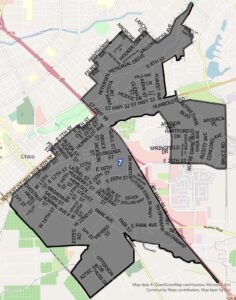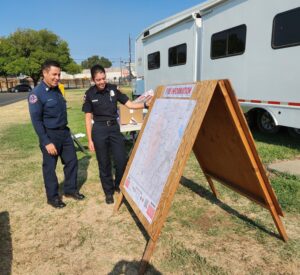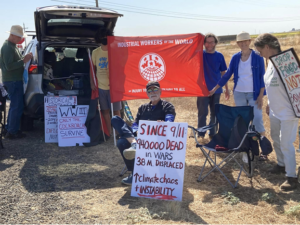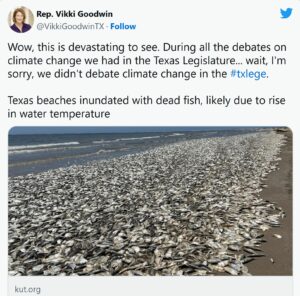The 46th annual Endangered Species Faire was celebrated today with a downtown parade that featured axolotls, giraffes, owls and salmon puppets — and served as a call to action on climate change and species preservation.
“Animals cannot speak up for themselves, so we speak up for them,” a host on the plaza stage told about 250 attendees after the parade. The fair was organized by the Butte Environmental Council (BEC) and began at 10 a.m., with around 20 booths representing a wide range of organizations, including nonprofits, for-profits and government agencies.
A parade participant who identified herself as Amanda — she asked that her last name not be used for personal reasons — joined the event with her daughter. With a few other participants, she carried a puppet that represented the river ecosystem, and her daughter carried a Monarch butterfly puppet they had constructed. Amanda said she was from Santa Cruz, where there used to be many Monarchs, but their numbers have declined significantly.





